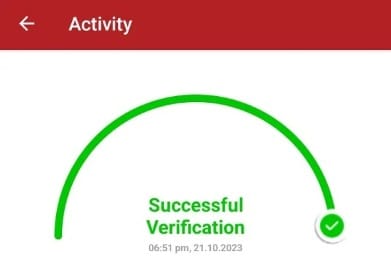Counterfeits –The Kenya Revenue Authority KRA has accelerated its efforts to clean up beverage industry from fake products.
The tax man has therefore introduced a mechanism App dubbed the Soma Label system to help fight counterfeit products in the market.
This is a free application designed to enable the public to authenticate consumer products. This initiative is part of KRA’s comprehensive strategy to bolster market oversight and combat the proliferation of counterfeit goods.
 Soma Label has a mobile app that comes in handy when one is purchasing goods in local stores. In accordance with the law, a range of products are mandated to bear excise tax stamps. These products include wines, spirits, beer, bottled water, juices, soda, energy drinks, cigarettes, and other tobacco items.
Soma Label has a mobile app that comes in handy when one is purchasing goods in local stores. In accordance with the law, a range of products are mandated to bear excise tax stamps. These products include wines, spirits, beer, bottled water, juices, soda, energy drinks, cigarettes, and other tobacco items.
How it works
The Soma Label application empowers users to scan a product’s excise tax stamp for authenticity verification. In the event of an authentic stamp, additional product-specific information is retrieved from the track and trace system. This immediate confirmation of authenticity enables consumers to confidently purchase genuine products.
A genuine product will return the message: “Successful Verification“.
A product that is not genuine will return the message “Verification Failed”.
As the festive season nears, a lot of Kenyans will be indulging in their favourite drinks. The scourge of fake alcohol sold to Kenyans continues to linger. This happens to unsuspecting customers even those that patronize high end establishment.
Therefore, it wise to arm yourself with the Soma Label application. When making purchases of any of the goods listed above, make sure you scan the tax stamps and authenticate the product.
Protecting health
 KRA Tax stamps are equipped with multiple security features and are individually numbered with encrypted data codes. The encrypted data codes on each stamp are seamlessly integrated into a track and trace system. The system maintains individualized information for each product. Track and trace systems oversee the progression of raw materials and components as they move through the supply chain, through manufacturing, distribution, and into the hands of consumers.
KRA Tax stamps are equipped with multiple security features and are individually numbered with encrypted data codes. The encrypted data codes on each stamp are seamlessly integrated into a track and trace system. The system maintains individualized information for each product. Track and trace systems oversee the progression of raw materials and components as they move through the supply chain, through manufacturing, distribution, and into the hands of consumers.
This system provides specific insights into the exact company plant and production sector where a product is manufactured. It also facilitates the tracing of a product’s journey from raw materials through manufacturing to the consumer, or even in the reverse direction. That is, from the consumer back to the factory and the raw materials.
It means, a verified product can vouch for the authenticity and legality of its ingredients. A Kenyan consuming such a product may have a confidence that they are not putting their health at risk.

